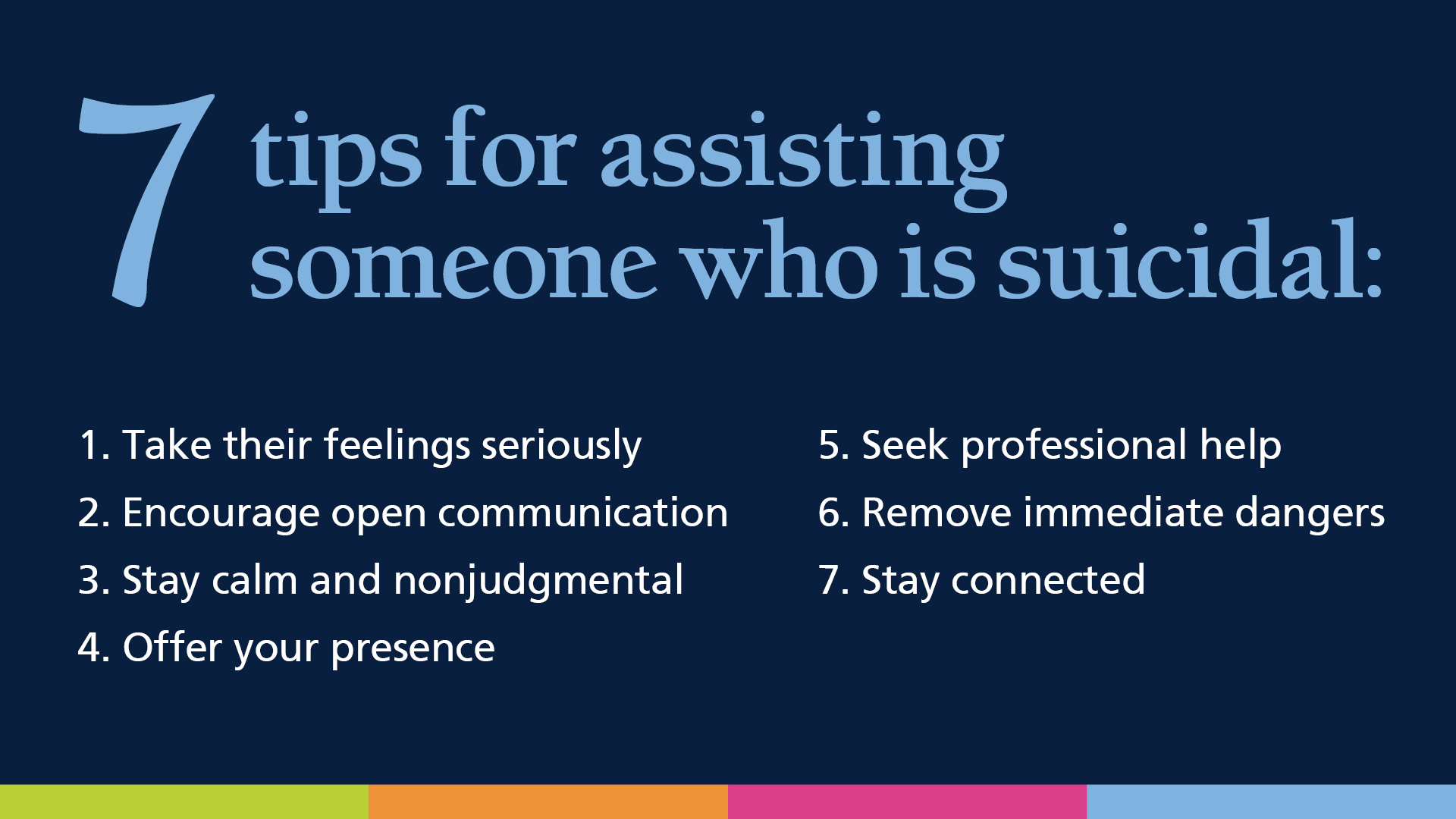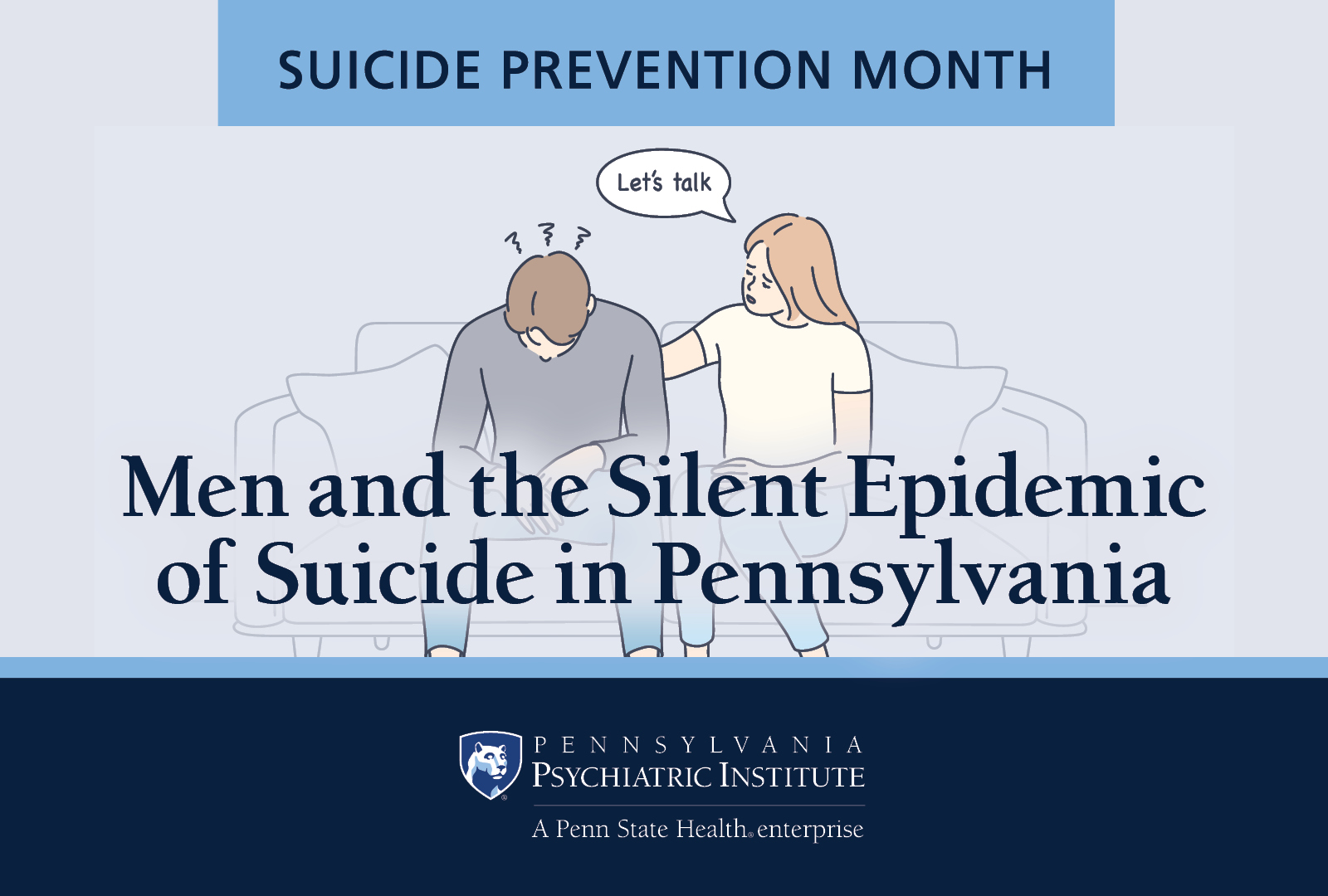While suicide affects individuals of all genders, the alarming statistics surrounding male suicide rates indicate a silent crisis that is often overlooked. Suicide rates among men have been a growing concern, both at a national level and state level. In the U.S., men make up 75% of the deaths by suicide. In a 2018 Pennsylvania report, men make up 79%. It is crucial to address this issue and understand the underlying factors contributing to these high rates.
Several societal factors contribute to the higher prevalence of male suicide. Traditional gender norms and stereotypes place expectations on men to be strong, discouraging them from seeking help or expressing their emotions openly. This can lead to feelings of isolation and an inability to cope with mental health challenges.
Additionally, societal pressures such as financial stress, unemployment, relationship difficulties or substance abuse can further exacerbate the risk of suicide. Men may feel compelled to conform to societal expectations of success and masculinity, which can create immense pressure and feelings of failure when these expectations are not met. The societal stigma surrounding mental health issues may also prevent men from seeking professional help or reaching out for support from friends and family.
Addressing the silent crisis of male suicide requires a multi-faceted approach that involves raising awareness about mental health issues affecting men, promoting open conversations about emotions and seeking help, improving access to mental health services and fostering supportive communities where individuals feel comfortable reaching out for support.

When someone is suicidal, it is crucial to provide them with the support and help they need. Here are some tips for assisting someone who is suicidal:
- Take their feelings seriously: It is important to listen to their concerns without judgment and validate their emotions. Let them know that you take their feelings seriously and that you are there to support them.
- Encourage open communication: Create a safe space for open and honest conversation. Encourage them to express their thoughts and feelings without fear of being judged or misunderstood.
- Stay calm and nonjudgmental: It is essential to remain calm, patient and nonjudgmental when talking with someone who is suicidal. Avoid making negative comments or criticizing their actions, as this can worsen the situation.
- Offer your presence: Be physically present for them if possible or make yourself available through phone calls or video chats. Let them know that they are not alone in this difficult time.
- Seek professional help: Encourage the person to seek professional help from a mental health expert such as a therapist, counselor or psychiatrist. Offer to help find resources or make appointments if needed.
- Remove immediate dangers: If there are any immediate threats to the person’s safety (such as access to weapons), remove these dangers while ensuring your own safety.
- Stay connected: Keep in touch with the person regularly even after the initial crisis has passed. Show ongoing support and remind them that you care about their well-being.
Remember, helping someone who is suicidal can be challenging, so it’s important that you also seek support for yourself from friends, family members or professionals who can guide you through this process.
Raising awareness about mental health and encouraging open conversations about emotions and struggles can play a vital role in preventing suicide. By recognizing these societal factors contributing to male suicide rates and taking proactive steps towards prevention and support systems, we can work toward reducing the suicide rate and promoting better mental well-being among men.
Pennsylvania residents have streamlined access to behavioral and mental health crisis support by dialing 988. Connecting directly to the National Suicide Prevention Lifeline, callers are promptly connected to a local 988 call center based on area code, ensuring immediate assistance from trained professionals. Additionally, the system offers dedicated options for veterans or Spanish-speaking individuals.
At PPI, we understand mental health. Call our admissions department at 866-746-2496 to learn more.
Click here to read the 2018 PA suicide report.

